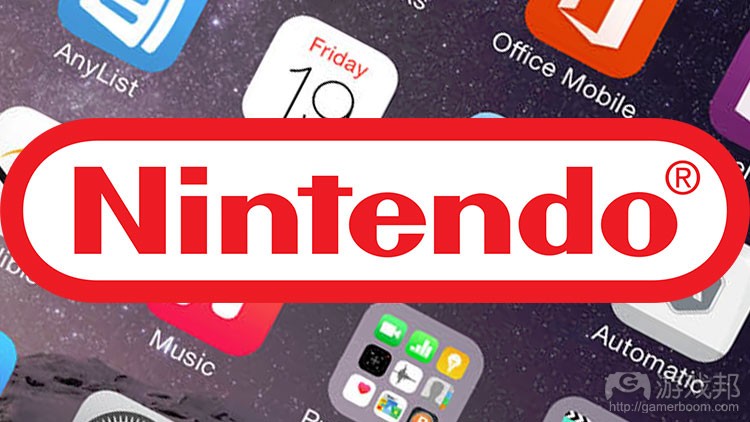从忽视到成为战略:任天堂计划打造10亿美元的手游业务
从忽视到成为战略:任天堂计划打造10亿美元的手游业务
原作者:Jon Jordan 译者:Willow Wu
经历了两年的迷茫期,任天堂终于为他们的手游业务定制了一套比较合理策略。
新社长古川俊太郎在上任之前就跟Nikkei(日本经济新闻报刊)透露他的目标是在任天堂打造年收入1000亿日元(10亿美元)的手游业务。
出于历史原因,任天堂现将手游业务的销量归入到“智能设备和IP相关的收入”中。
2017年,该类别的收益是390亿日元(3.55亿美元),占任天堂总收益的5%,手游销售额估算大概是3亿美元。
利益冲突
所以古川打算如何将任天堂的手游业绩翻三倍?
在采访中,他并未透露更多细节,但是任天堂的改革重点我们了然于心。
迄今为止,任天堂发行的三款手游都是基于现有的IP产品。
《超级马里奥跑酷》给玩家提供的是混合式游戏体验——记得任天堂的“free-to-start”模式吗?游戏既包含了免费游戏体验,还附带了经典超级玛丽玩法的付费DLC,不得不说这挺奇怪的。从游戏的下载量来看可能还不算特别糟糕,但从商业角度来看真的算不上是成功。
虽然第三款产品《动物之森:口袋露营》应用了更为标准的F2P设计和盈利模式,但结果却更令人失望。它并没有获得多少正面评价,下载量也是一般,在日本之外的国家都没有获得很好的成绩。
只有《火焰纹章:英雄》做到了——应用了最挣钱的RPG的模式,自动玩法再加上包含角色收集、升级、兑换稀有物品的meta部分,尽管游戏发行已经一年多了,它还是能够时不时地打入北美和日本地区的畅销榜前十。
任天堂计划再推出一款IP手游:《马里奥赛车:巡回赛》(Mario Kart Tour),这真是一点都不让人意外。同时他们也宣布收购手游开发商Cygames的股份, Cygames旗下的《巴哈姆特之怒》是最早在西方获得成功的日式RPG手游之一,它也是2012年最吸金的手游之一。Cygames是core RPG领域的能手。
任天堂和Cygames将会合作开发一款全新IP游戏Dragalia Lost。
一张白纸
任天堂不用现存IP是一个不可小觑的举动。
《超级马里奥跑酷》和《动物之森:口袋露营》失败的原因在于任天堂“太天真了”——挑一个靠得住的游戏主题再加上可以用的盈利设计,组成一个算得上是手游的产品,把希望寄托于长期累积下来的广大玩家上,以为可以轻轻松松靠他们获得巨额收益。
任天堂和DeNA联合开发的《马里奥赛车:巡回赛》项目还是会遇到同样的问题。
然而,使用全新IP就意味着开发者们摆脱了原作的束缚,可以自由选择当下F2P游戏中最受玩家欢迎的游戏设计元素。
更重要的是,玩家的初始期望从原来的“千万别把我爱的IP搞砸了!”转变为“哇,任天堂的全新手游!”
下一步呢?
综合上述来看,10亿美元的手游业绩也并不是那么遥不可及。
任天堂在本土市场的影响力是显而易见的,《怪物弹珠》和Fate/Grand Order在日本地区的app stores连续好几年都达到了年收入10亿美元。
另外,任天堂表示Dragalia Lost除了在日本首发,也会在其他亚洲地区,比如港澳台等手游市场相对比较发达的地方同时发行。
也许任天堂只需要多发行几个类似《火焰纹章:英雄》这样的优质的RPG手游就行了。
又或者,如果这位新社长真的有野心,他会放出新的大招。
就比如,虽然Pokemon Go的授权协议包含了一些有时限的竞业禁止条款,但这样一个能在移动平台狂捞10亿美元的IP不太可能永远局限在LBS(基于位置的服务)+AR模式上,任天堂应该可以创造出其它有趣的玩法。
本文由游戏邦编译,转载请注明来源,或咨询微信zhengjintiao
After two miserable years of confusion, Nintendo finally has a coherent strategy for its mobile games.
New president Shintaro Furukawa stamped his mark on the company even before taking up his new role, telling Nikkei he wants to build mobile games into a ¥100 billion (effectively a $1 billion) annual business.
At the moment, for historic reasons, Nintendo combines sales from what it calls “smart devices” into a category alongside “IP related income etcetera”. Hopefully that demarcation will soon be a thing of the past too.
During FY17, the category generated ¥39 billion ($355 million) – or 5 per cent of Nintendo’s overall sales – with a rough estimate suggesting mobile game sales accounted for around $300 million.
Conflict of interest
So how does Furukawa plan to triple Nintendo mobile games business?
He didn’t reveal any more details in the interview but the thrust of what the company has to change is clear.
To date, it’s released three games, all based on existing Nintendo IP.
Super Mario Run was a weird hybrid experience – remember “free-to-start”, in which Nintendo attempted to combine classic Mario console gameplay with paid DLC? Perhaps not a total disaster given the volume of downloads it generated, but it wasn’t a commercial success either.
And despite using a more standard free-to-play game design and monetisation, third release Animal Crossing: Pocket Camp was even more disappointing.
It didn’t generate much positive reaction or downloads, and outside of everywhere except Japan failed in terms of top grossing status.
Only Fire Emblem Heroes hit the spot.
Slipping easily into the lucrative RPG genre, which relies on autoplay gameplay mechanics with a deep metagame revolving around character collection and levelling to monetise scarce items, over a year since it launched it still regularly peaks in the top 10 top grossing game charts in North America and Japan.
It’s no surprise then that while Nintendo will release another mobile game based on classic IP – Mario Kart Tour – it’s also announced it’s taken a stake in Japanese mobile developer Cygames, which specialises in core RPGs.
Its game Rage of Bahamut was one of the first successful Japanese mobile RPGs in the West and one of the top grossing titles of 2012.
Together, they will release a mobile game based on a brand new IP Dragalia Lost.
A clean slate
The importance of not using an existing Nintendo franchise can’t be overestimated.
Where Super Mario Run and Animal Crossing: Pocket Camp failed was in their attempt to combine the sort of game and economy design a mobile title requires to generate hundreds of millions of dollars with the expectations of a large and vocal historic fanbase.
No matter how Nintendo and its partner DeNA approach Mario Kart Tour, it will suffer from similar issues.
Starting with a brand new IP, however, enables the design of gameplay and metagame using the well-understood mechanics that now generate $40 billion annually in free-to-play mobile games.
And, more positively, audience reaction switches from a default ‘Don’t mess up the game I love’ to an excited ‘Cool, a brand new mobile game from Nintendo’.
What’s next?
In that context, moving from $300 million of annual mobile game revenues (mainly from Fire Emblem Heroes) to $1 billion suddenly doesn’t look that ambitious.
This is particularly the case given Nintendo’s obvious potential in a domestic market in which games such as Monster Strike and Fate/Grand Order have generated $1 billion annually just from the Japanese app stores for consecutive years.
Notably, Nintendo says Dragalia Lost will launch first in Japan and other high value Asian markets such as Hong Kong, Macau and Taiwan.
So, maybe all Nintendo will need to do to hit that $1 billion target is release a couple more Fire Emblem Heroes-style mobile RPGs.
Alternatively, if its new president has real ambitions, he will bring out the big guns.
No doubt, Pokemon Go’s licensing deal contains some sort of timed non-compete clause, but it seems unlikely an IP that’s already demonstrated it can generate $1 billion on mobile will be limited to one location-based/AR experience for ever.(source:pocketgamer.biz )








































 闽公网安备35020302001549号
闽公网安备35020302001549号